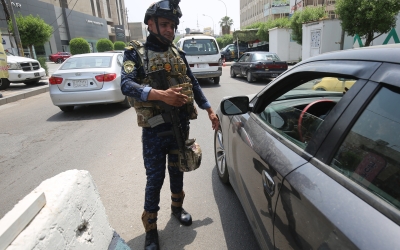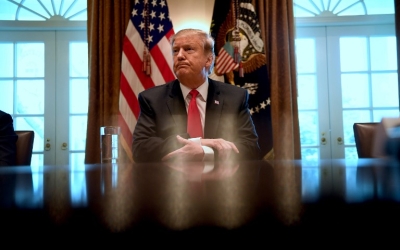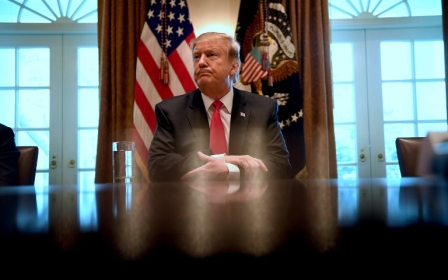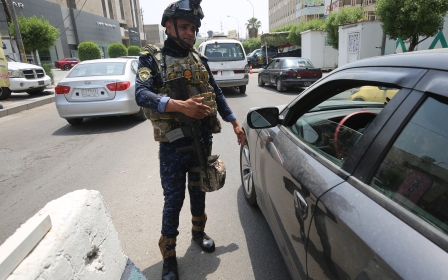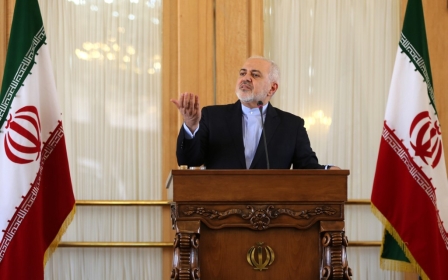Trump says considering pardons for some US soldiers accused of war crimes
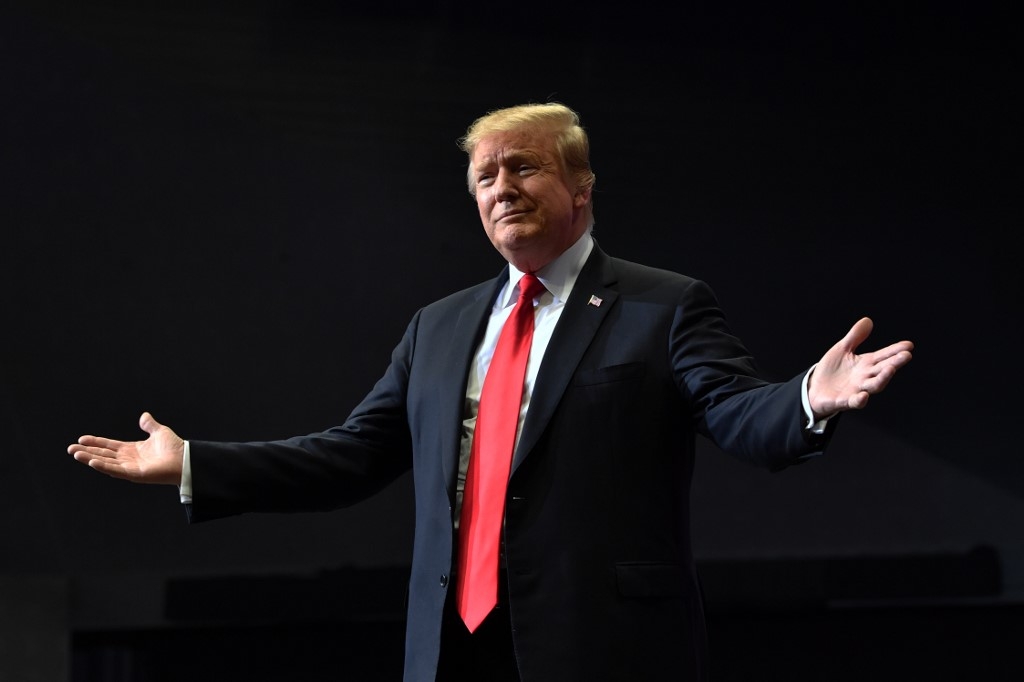
US President Donald Trump has said he is considering pardons for "two or three" US soldiers charged with war crimes, a move he said would be controversial but justified because they had been treated "unfairly".
Trump told reporters at the White House on Friday that he had not yet decided on the cases, but may wait until the accused stood trial before deciding whether to grant them pardons.
"Some of these soldiers are people that have fought hard, long," Trump said.
"You know, we teach them how to be great fighters, and then when they fight sometime, they get really treated very unfairly."
He did not identify which cases he was reviewing.
New MEE newsletter: Jerusalem Dispatch
Sign up to get the latest insights and analysis on Israel-Palestine, alongside Turkey Unpacked and other MEE newsletters
The New York Times (NYT) on 18 May reported Trump had asked the Justice Department for paperwork on several high-profile war crimes cases in preparation for possible pardons to be announced on or around the US Memorial Day holiday honouring fallen troops.
This year's holiday is to be observed on 27 May.
Sniper's perch
One request, according to the NYT report, was for Special Operations Chief Edward Gallagher, a decorated US Navy SEAL court-martialed on charges he fatally stabbed a helpless, wounded Islamic State fighter in his custody, and shot two unarmed civilians from a sniper's perch during his 2017 deployment to Iraq.
The 39-year-old combat veteran and platoon leader has pleaded not guilty to all charges.
Defence lawyers say the allegations against him were fabricated by subordinate SEAL team members disgruntled with his leadership style and seeking to force him out.
Gallagher's trial was delayed this week until 10 June at the earliest.
His lawyer told the Reuters news agency he had not asked for a pardon, and Gallagher declined to comment on the possibility of presidential clemency when asked by reporters in court.
'A conspiracy that's non-existent'
The prospect of Trump offering Gallagher a pardon seemed heightened by this week's appointment to his defence team of former federal prosecutor Marc Mukasey, one of Trump's personal lawyers and an associate of fellow Trump attorney Rudolph Giuliani, the former New York City mayor.
Another Giuliani associate, ex-New York Police Commissioner Bernie Kerik - who served three years in prison in a federal corruption case - is an investigator on Gallagher's defence team.
Mukasey, in an interview with Reuters on Thursday, dismissed the notion of seeking a pardon for Gallagher.
"I have a job to do in the courtroom. I have no clue whether anything else is going on," he said.
Gallagher's wife, Andrea, denied any suggestion of impropriety over a lawyer for the commander-in-chief joining her husband's court-martial defence.
"There is no direct conflict in my mind," she told Reuters on Friday.
"Marc Mukasey has not talked to the president. The president has not talked to him.
"So I think that this insinuation that a lawyer representing one individual that's also representing another is actually just stringing together a conspiracy that's non-existent."
Preemptive pardon
Gallagher's lead civilian attorney, Timothy Parlatore, told reporters on Wednesday following a hearing at Naval Base San Diego: "If the president decides to step in, that's what the commander does."
Trump first weighed in on the Gallagher case publicly in March, ordering the defendant moved to less restrictive pre-trial confinement "in honour of his past service to our country".
A number of conservative commentators have urged him to pardon Gallagher.
Critics say it would preempt justice, undermine military discipline and send a message that battlefield atrocities will be tolerated.
The overwhelming majority of pardons are granted to people who have already been convicted and served time for a federal offense, as when Trump earlier this month pardoned former Army Lieutenant Michael Behenna, who served five years in prison for killing an Iraqi prisoner in 2008.
But presidents have occasionally granted pardons preemptively to individuals accused of or suspected of a crime.
The most famous such case was the blanket pardon former president Gerald Ford bestowed on his predecessor, Richard Nixon, following Nixon's resignation during the Watergate scandal.
Middle East Eye delivers independent and unrivalled coverage and analysis of the Middle East, North Africa and beyond. To learn more about republishing this content and the associated fees, please fill out this form. More about MEE can be found here.


